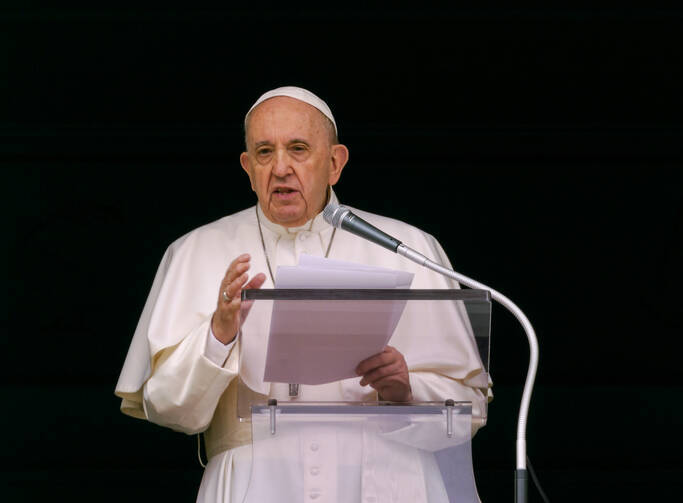ROME (AP) — Pope Francis has agreed to meet in December with Indigenous survivors of Canada’s notorious residential schools amid calls for a papal apology for the Catholic Church’s role in the abuse and deaths of thousands of native children.
The Canadian Conference of Catholic Bishops said Francis had invited the delegations to the Vatican and would meet separately with three groups — First Nations, Metis and Inuit — during their Dec. 17-20 visit. The pope will then preside over a final audience with all three groups Dec. 20, the conference said in a statement Tuesday.
The Vatican didn’t confirm the visit Wednesday, but the Holy See’s in-house news portal reported on the bishops’ statement. The Canadian bishops said the trip was contingent on the pandemic and that the delegations would include survivors of the residential schools, Indigenous elders and youths, as well as Indigenous leaders and Canadian bishops.
Pope Francis has agreed to meet with Indigenous survivors of Canada’s notorious residential schools amid calls for a papal apology for the Catholic Church’s role in the abuse and deaths of thousands of native children.
In recent weeks, investigators using ground-penetrating radar have reported finding hundreds of unmarked graves at the sites of two residential schools for Indigenous children. The discoveries — more than 600 graves in one school, 215 bodies in another — have revived calls, including from Prime Minister Justin Trudeau, for the pope to make a formal apology.
From the 19th century until the 1970s, more than 150,000 Indigenous children were forced to attend state-funded Christian boarding schools in an effort to assimilate them into Canadian society. Thousands of children died there of disease and other causes, with many never returned to their families.
Nearly three-quarters of the 130 residential schools were run by Roman Catholic missionary congregations, with others operated by the Presbyterian, Anglican and the United Church of Canada, which today is the largest Protestant denomination in the country.
The government formally apologized for the policy and abuses in 2008. In addition, the Presbyterian, Anglican and United churches have apologized for their roles in the abuse.
From the 19th century until the 1970s, more than 150,000 Indigenous children were forced to attend state-funded Christian boarding schools in an effort to assimilate them into Canadian society.
The Canadian bishops didn’t mention the demand for a papal apology in the statement, saying only that Francis was “deeply committed to hearing directly from Indigenous peoples.”
It said he had personally invited the delegations of Indigenous and would use the meetings for “expressing his heartfelt closeness, addressing the impact of colonization and the role of the Church in the residential school system, in the hopes of responding to the suffering of Indigenous peoples and the ongoing effects of intergenerational trauma.”
A papal apology was one of 94 recommendations from Canada’s Truth and Reconciliation Commission, but the Canadian bishops conference said in 2018 that the pope could not personally apologize for the residential schools.
Pope Benedict XVI, who retired in 2013, met with some former students and victims in 2009 and told them of his “personal anguish” over their suffering. But he offered no apology.
After last month’s discovery of the 215 bodies, Francis too expressed his pain and pressed religious and political authorities to shed light on “this sad affair.” But he didn’t offer an apology, either.
The Argentine pope, however, has apologized for the sins and crimes committed by the Catholic Church against Indigenous peoples during the colonial era conquest of the Americas. He begged forgiveness during a 2015 visit to Bolivia and in the presence of Indigenous groups, suggesting that a similar in-person mea culpa might be in the offing in December.
The Canadian bishops said they hoped the meetings would “lead to a shared future of peace and harmony between Indigenous peoples and the Catholic Church in Canada.”









